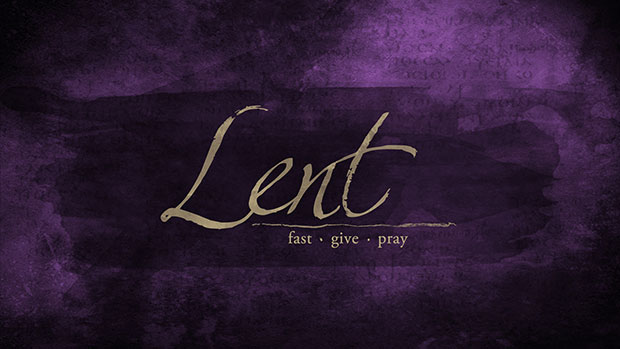General
Christians Begin Lent Today


By Dipo Olowookere
The annual Lenten season observed by Christians worldwide begins today, Wednesday, March 1, 2017.
During the period, which lasts for 40 days, Christians are expected to pray and fast in reflection on Jesus Christ’s suffering and his sacrifice, his life, death, burial, and resurrection.
They are also expected to abstain from meat or anything with blood, especially on Good Friday and give alms to the poor.
The season begins with an Ash Wednesday (today) and ends with a great celebration of Easter, which holds on April 17 this year.
In Catholic churches across the world, ashes will be placed on the forehead of every member to remind them that man was made by God from dust and shall also return to dust, according to the Bible.
Nowadays, the season is majorly observed by Catholics with other denominations snubbing it.
About a week ago, the Redeemed Christian Church of God (RCCG) concluded their annual fast, which lasted for 40 days.
Earlier, members of Living Faith Church otherwise known as Winners Chapel, completed a 21-day fast.
General
Shell Makes First Nigerian Deep-Water Project Investment in Decade

By Adedapo Adesanya
Shell Nigeria Exploration and Production Company Limited (SNEPCo), the Nigerian subsidiary of Shell Plc, has announced a final investment decision (FID) on Bonga North, a deep-water project off the coast of Nigeria.
This will be the first of such investments in over a decade.
According to a statement on Monday, Bonga North will be a subsea tie-back to the Shell-operated Bonga Floating Production Storage and Offloading (FPSO) facility which Shell operates with a 55 per cent interest.
Bonga is a deep-water development located in OML 118, at water depths exceeding 1,000 meters. Production at the Bonga FPSO began in 2005, with a capacity to produce 225,000 barrels of oil per day. The project produced its one-billionth barrel of crude oil in 2023.
This means Shell will operate the majority (55 per cent) in the Bonga field in partnership with Esso Exploration and Production Nigeria Ltd. (20 per cent), Nigerian Agip Exploration Ltd. (12.5 per cent), and TotalEnergies Exploration and Production Nigeria Ltd. (12.5 per cent), on behalf of the Nigerian National Petroleum Company (NNPC) Limited.
The Bonga North project involves drilling, completing, and starting up 16 wells (8 production and 8 water injection wells), modifications to the existing Bonga Main FPSO and the installation of new subsea hardware tied back to the FPSO.
“The investment in Bonga North is expected to generate an internal rate of return (IRR) in excess of the hurdle rate for Shell’s Upstream business,” the oil major said.
The project will sustain oil and gas production at the Bonga facility. Bonga North currently has an estimated recoverable resource volume of more than 300 million barrels of oil equivalent (boe) and will reach a peak production of 110,000 barrels of oil a day, with the first oil anticipated by 2030.
“This is another significant investment, which will help us to maintain stable liquids production from our advantaged Upstream portfolio,” said Ms Zoë Yujnovich, Shell’s Integrated Gas and Upstream Director.
President Bola Tinubu has welcomed the move saying it underscores the transformative impact of his administration’s policies and reforms in attracting investments in the oil and gas sector.
“This FID on Bonga North, and the FID on Ubeta earlier in 2024 both demonstrate the efficacy of the oil and gas reforms and directives championed by the President.
“These projects will trigger broader investments to revolutionise Nigeria’s power generation, transportation, and manufacturing sectors. In 2025 we anticipate further FIDs from international and domestic players. A new era of growth and opportunity for Nigeria,” according to a statement by the Special Adviser to the President on Energy, Ms Olu Verheijen.
General
EFCC Apprehends 792 Cryptocurrency Investors, Others in Lagos

By Adedapo Adesanya
The Economic and Financial Crimes Commission (EFCC) has arrested about 792 persons suspected to be involved in cryptocurrency investment and romance scams in Lagos.
A statement issued by the anti-money laundering agency’s Director of Public Affairs, Mr Wilson Uwujaren, said the accused persons are from Nigeria, China, and others.
Mr Uwujaren noted the arrest was made at their hideout on No 7, Oyin Jolayemi Street, Victoria Island, Lagos, after months of surveillance.
He said the foreign kingpins recruited their Nigerian accomplices to prospect for victims online through phishing, targeting mostly Americans, Canadians, Mexicans, and several others from European countries.
“They usually arm them with desktop computers and mobile devices and create fake profiles for them.
“The Nigerian accomplices are equally provided with logs that allow them access to foreign communication lines and victims, which they chat with on WhatsApp, Instagram and Telegram.
“They are also assigned WhatsApp accounts linked to foreign telephone numbers, especially from Germany and Italy.
“Their jobs are to engage victims in romantic conversations and phantom business and investment discussions to trick them to shop on the purported online investment shopping platform called www.yooto.com. For those who show interest, activation fees for an account on the platform start from $35,” the EFCC spokesman informed journalists at a news conference on Monday.
Mr Uwujaren added the suspects are being held in custody with valid remand warrant, adding that they will be arraigned soon.
This arrest comes weeks after the International Police (Interpol), in collaboration with other security agencies, nabbed 1,006 cybercrime suspects in Nigeria and other countries, including Kenya and Algeria, among others.
General
Nigeria Funds 124 Road Projects With N1.1trn Sukuk Sales

By Adedapo Adesanya
Nigeria issued six sovereign Sukuk worth N1.1 trillion ($657.6 million) to finance 124 federal road projects covering over 5,820 kilometres across the six geopolitical zones of the country in 2024.
Sukuk, also known as Islamic bonds, are financial instruments compliant with Islamic tenets that generate returns for investors. They don’t involve interest payments, which are prohibited.
The Director General of the Securities and Exchange Commission (SEC), Mr Emomotimi Agama, while speaking at the 2nd International Islamic Capital Market Conference in Karachi, Pakistan, a few days ago, said the success rate makes the Islamic Capital Market (ICM) stand out as a resilient and innovative tool for mobilising resources in the country, where funding is needed.
Mr Agama described the issuance of sovereign Sukuk since 2017 as a key pillar responsible for the growth of the ICM in Nigeria adding that these issuances have consistently been oversubscribed, with subscription rates reaching as high as 441 per cent, adding that sub-national and corporate Sukuk issuances are also growing in Nigeria.
Notable examples include Osun and Lagos states, Family Homes Ltd, and TAJ Bank Plc, along with private Sukuk issuances by three other sub-nationals, saying that these instruments have been instrumental in funding school infrastructure, housing and a first of its kind in Nigeria, tier 1 capital for a bank and underscores the versatility of Sukuk as a financing tool.
“Beyond Sukuk, the ICM segment in Nigeria offers diverse investment opportunities. From one registered fund in 2008, the segment currently boasts of 14 registered Halal mutual funds with a net asset value exceeding ₦105 billion as of November 2024. The NGX Lotus Islamic Index tracks 11 Shariah-compliant equities, while Nigeria’s first Islamic Real Estate Investment Trust – ChapelHill N-REIT – highlights the potential of real estate investments.
“The prospects for Nigeria’s Islamic finance industry are underpinned by key growth drivers, both global and domestic. Globally, demographic trends, economic diversification efforts in oil-dependent economies, and regulatory support have spurred demand for Sharia-compliant products.
“Locally, Nigeria’s large Muslim population, government-backed Sukuk initiatives, and growing investor awareness are driving market expansion. Emerging innovations in fintech also present further opportunities for market development. In that regard, the SEC-registered the first Robo advisory firm in the Nigerian Capital Market in 2022. This Robo Advisor is focused on Shari’ah-compliant investments,” he said.
Mr Agama said the success of the ICM in Nigeria is deeply rooted in its strategic focus on infrastructure financing, financial inclusion, and sustainability as the SEC’s engagement with the ICM dates back to 2004, when the SEC joined the Islamic Finance Task Force of the International Organization of Securities Commissions (IOSCO).
The SEC boss said this commitment was followed by the issuance of Islamic fund and Sukuk Rules in 2010 and 2013, respectively and later solidified in the Non-Interest Capital Market Master Plan (2015–2025), which outlines a 10-year roadmap for expanding the market’s depth and diversity.
Adopted in 2015 as part of the broader Nigerian Capital Market Master Plan (2015–2025), the Non-Interest Capital Market Master Plan (NICMMP) has been central to the development of the ICM segment in Nigeria. ‘
The document sets out a vision for the Islamic Capital Market – otherwise known as the Non-Interest Capital Market (NICM) in Nigeria – to contribute 25 per cent of total market capitalization by 2025, with Sukuk accounting for 15 per cent.
“The masterplan was further reviewed in 2021, to provide a renewed focus on deepening the ICM, through targeting 50 listings of sharia-compliant products with market capitalisation of at least N5 trillion ($11 billion) by 2025.
“The performance of the NICM Masterplan has been remarkable. Of the 15 initiatives outlined in the roadmap, nine had been fully implemented as of 2022, representing a 70 per cent success rate. Key achievements include improved public awareness, increased retail participation in Sukuk, and the introduction of the Non-Interest Pension Fund (Fund VI) through collaboration with the National Pension Commission (PenCom).
“Another key achievement was the release of guidelines for taxation of Non-Interest transactions, in collaboration with the FIRS. This solved the challenge of double taxation hindering such transactions,” he said.
-

 Feature/OPED5 years ago
Feature/OPED5 years agoDavos was Different this year
-
Travel/Tourism8 years ago
Lagos Seals Western Lodge Hotel In Ikorodu
-

 Showbiz2 years ago
Showbiz2 years agoEstranged Lover Releases Videos of Empress Njamah Bathing
-

 Banking6 years ago
Banking6 years agoSort Codes of GTBank Branches in Nigeria
-

 Economy2 years ago
Economy2 years agoSubsidy Removal: CNG at N130 Per Litre Cheaper Than Petrol—IPMAN
-

 Banking2 years ago
Banking2 years agoFirst Bank Announces Planned Downtime
-

 Sports2 years ago
Sports2 years agoHighest Paid Nigerian Footballer – How Much Do Nigerian Footballers Earn
-

 Technology4 years ago
Technology4 years agoHow To Link Your MTN, Airtel, Glo, 9mobile Lines to NIN












